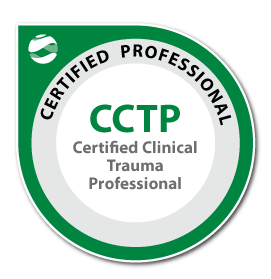Bipolar Disorder: Managing Emotions through Psychotherapy
Can I overcome bipolar disorder? That is one of the biggest question I get from patients. They want to know the best way to manage their emotions from this mental illness, but are frustrated at finding the right path to accomplish their goals.
That is why in this article we talk about some of the most promising strategies to answer patients’ bipolar questions.‚ Research into the bipolar disorder over the past few decades have helped to close the chasm of knowledge, so we can help more people afflicted with bipolar live a normal life.
How to manage emotions with bipolar disorder
Many of the therapies that we discuss in this article have a similar basis in psychotherapy. In fact, while we discuss different treatments, sometimes a mix of these treatments will help patients the most.
Keep in mind also that the sooner we can detect and plan for diagnosis of bipolar disorder, the more we can help.
By educating patients on the different treatments, it helps everyone get on the same page. Then we can use a combination of medications and stress management to subdue bipolar disorder.
Below are some of the most progressive treatments for helping bipolar patients.
Cognitive Behavior Therapy (CBT)
CBT was introduced in the famous book, Cognitive Therapy for Bipolar Disorder, by Drs. Basco and Rush (Ph.D. and M.D. respectively).
The method blends Cognitive Therapy (CT) and Behavioral Therapy together. CT focuses on patients’ thoughts and beliefs, while behavior therapy works to remove unhealthy behaviors.
When you fuse the two therapies together, you get a stronger prescription for fighting bipolar disorder. That is because the patient needs to not only focus on their beliefs, but also devise a plan and process to solve the problems behind those beliefs. Belief and action together are powerful forces for change.
Part of CBT also involves taking mood stabilizers to makes the patient receptive to the treatment.
Play Therapy
Unfortunately, bipolar disorders are not limited to adults. Many children have the illness as well. Therefore, it is essential to use other types of therapy to help them. One of the most effective therapies for kids is play therapy.
In this therapy, professionals can analyze a child’s progression through the use of games. The games become a way to monitor a child’s progress in real-time scenarios.
Take a recent session with Michael, an 11 year old boy who had sexual abuse challenges at the beginning of the year. The therapy provides an open space to discuss these issues. Michael’s mom stated:
‘“Michael’s therapist does play therapy, which is what works best with my son. At the beginning she concentrated on his sexual abuse issues. When that got better, the focus was whatever was going on at the time. If he was paranoid, they would talk about that. Self-esteem is always an issue. They discuss bipolar disorder and what it means for him.’
By playing games, the doctor is able to open up with the patient in a non-confrontational way to help them through whatever challenges they may be facing.
Everyday treatment
While the previous two methods help in reducing bipolar disorder, the disease does not take breaks between sessions. Therefore, as part of the treatments discussed above, it is important to use the following ideas to reduce the effects of bipolar disorder.
- Keep a regular routine. Go to sleep, eat, and do many activities on a schedule. You do this, because it sets the expectations mentally for what you can accomplish with your mind.
- Understand your stressors. Bipolar has as much do with not being able to adapt to changing circumstances as it does much to remove the fear from circumstances that lead to future episodes.
- Avoid alcohol and drugs. Any type of substance that can affect your mood without a doctor prescription can add a dangerous fragment to your mood
Final Thoughts
Bipolar disorder can be a treatable disease when the doctor and patient work together for mutual benefit. If you or someone you know is struggling with bipolar disorder, do not hesitate. Reach out to our office at 847-824-8366, so we can discover the best course of treatment at the beginning.




